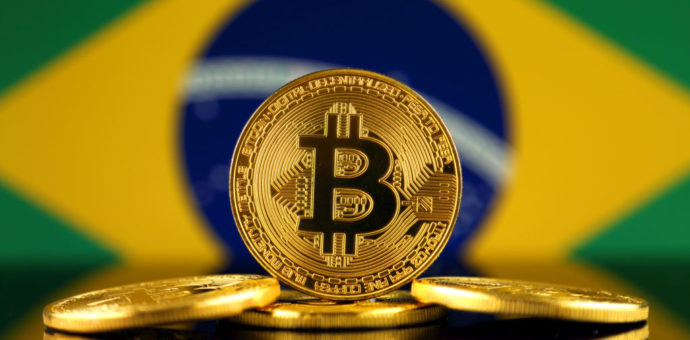Brazil’s Congressman Aureo Ribeiro presented the new bill to regulate bitcoin and other cryptocurrencies in the country. Unlike the old proposal, the new proposition addresses only the legal regime of cryptoasset. The proposal has ten articles and modifies some provisions of the Penal Code, the law on crimes against the popular economy and the law on the securities market.
Here are some of the changes:
Recognition
The justification for the bill shows a favorable view of the cryptoassets. Specially when it points out that “the technology, when fostered in a regulated environment, is an instrumental element in the reduction of frauds in commercial relations, given the immutability of the blockchain. It serves, in addition, for its public feature, the fight against money laundering and corruption, a utility that proves to be pressing in the current Brazilian context. “
Name
In fact, the very nomenclature of crypto-coins for cryptoassets is a positive point of the bill. “By adopting broad terms, in principle, the bill regulates everything that can be considered cryptoassets, and leaves no gaps into that matter,” says Transfero Swiss AG’s Legal & Corporate Affairs head Julian Lanzadera.
Classification
The bill classifies the cryptoassets as to the genre, of which are species: the payment tokens, the utility tokens and the access tokens. “The treatment given by the Brazilian legislation differs somewhat from that proposed by Finma-regulating body of the Swiss capital market, which classifies the tokens in payment tokens, asset / security tokens and utility / access tokens,” says Lanzadera.
In addition, in the Brazilian bill there is no express mention of the so-called security tokens, which have as ballast assets with characteristics of securities. “The only reference is that, in clause III, it is said that a token that characterizes a security is not an access token, so it is concluded that the so-called security token could fit the concepts established in items I and II of the bill “, points out the executive.
Stablecoins
“One aspect that drew attention in the text was that the classifications established in items I and II exclude cryptoassets that represent legal tender in Brazil or in any other country. In this case, for example, one does not know what would be the classification of a stablecoin paired with the national currency “, comments the executive.
Utility
The proposal defines crypto-currencies as a security. Therefore, if approved, it will empower CVM (Brazil’s security comission) to supervise the transaction or offer of tokens or crypto-coins. In addition, the local authority could waive the registration of activities, but analyze the benefits risks of each authorization.
Focus on Crypto-Coins
Unlike the old archived proposition (PL 2,303 / 2015), which included even air miles, Bill No. 2,060 / 2019 addresses only the legal regime of cryptoassets. A positive aspect of the proposal, since it did not make sense to join in one package air miles (centralized) and bitcoin (decentralized).
Pyramid
The document also addresses money laundering and corruption with the use of crypto-coins. This becomes clearer in the writing of articles aimed at increasing the penalty for those committing crimes against the popular economy.
One of these crimes provided by this bill (not expressly) is that popularly known as the financial pyramid. If the project is approved, those who commit this type of crime can receive a sentence of detention of up to five years. Currently, the maximum is two years.
In this specific point, the bill is positive because it hardens the penalty for the scammers, who so much damage the activity and the image of the crypto market. It is worth remembering that schemes like the financial pyramids have existed for a long time and have always been perpetuated with fiduciary currencies.
It is also important to remember that corruption scandals are commonly carried out with physical money. The tips paid with bags of money are fresh in the memory of the Brazilian people. On the other hand, transactions with crypto-coins are more easily traceable than with Fiat money.
Conclusion
For Julian Lanzadera, undoubtedly the initiative of the bill is important for the healthy development of the sector, besides bringing legal certainty in commercial relations once approved in terms satisfactory to the market. “The debate has started and like every legislative process, the bill will change over time. We expect these changes to bring benefits to the industry rather than further upset the current scenario, “he concludes.







